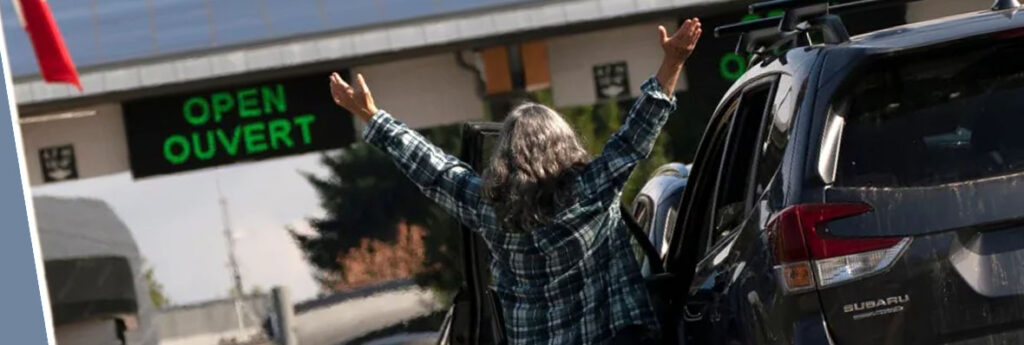Fully vaccinated US citizens are wasting little time as they seize the opportunity to venture into Canada for the first time in 17 months. John Adams, a Florida resident who has been waging a relentless advertising campaign against travel restrictions at the Canada-US border, says he’s already on his way.
Adams, who owns property on Vancouver Island, says he has already heard from others who crossed the border by land shortly after midnight eastern time.
He says all of them have so far found the process to be smooth and “hassle-free.”
Eligible US citizens and permanent residents must live in the States and have allowed 14 days to pass since receiving a full course of a Health Canada-approved vaccine.
They are also needed to show proof of a negative molecular test for COVID-19 that’s no more than 72 hours old and to use the ArriveCAN app or online web portal to upload their vaccination details.
Fully vaccinated travellers who have recovered from the disease and are otherwise eligible to enter Canada can show proof of a positive molecular test taken between 14 and 90 days prior to crossing the border.
“So far our experience has been totally hassle-free, given the substantial new requirements,” Adams wrote in an email.
The restrictions had barely been eased 10 minutes before Adams got text messages from two separate people who had already crossed – one at the Peace Bridge in Buffalo, N.Y., the other in B.C.
“I asked both to rate their border crossing on a scale of one to 10 and both rated it as a 10.”
Denis Vinette, vice-president of the travellers branch of the Canada Border Services Agency, says the agency learned a lot when fully vaccinated Canadian citizens were allowed to return under similar conditions last month.
Vinette says about half had to be turned away during the first week because they hadn’t received one of the four vaccines approved by Health Canada, or had not waited the full 14 days after their last shot.
Canada has approved four vaccines: Pfizer-BioNTech, Moderna, the Oxford-AstraZeneca shot, also known as Covishield, and the single-dose Johnson & Johnson option. All except AstraZeneca have been approved and widely deployed in the US.
For its part, however, the US has resisted easing restrictions on non-essential travel at land crossings, and won’t say when that might change. Air and sea travellers are exempt, though passengers by rail, ferry and pleasure boat are not.
The White House did say last week that it is exploring whether to require discretionary visitors from outside the country to be fully vaccinated when the time comes to ease restrictions, although it remains unclear whether that discussion specifically includes Canadian travellers.
A labour dispute between the federal government and Canadian border agents was resolved promptly last week, easing fears of extensive delays. But Vinette says the screening process is still going to take time, which means travellers may have to wait a little longer to clear customs.
“We’re just asking folks to be patient.”
At a border crossing in Niagara Falls, cars lined up yesterday to be processed.
In the nearby tourist district of Clifton Hill, sidewalks and attractions were buzzing as families enjoyed the summer day.
Businesses in the border region said they had eagerly been awaiting the rolling back of travel restrictions.

